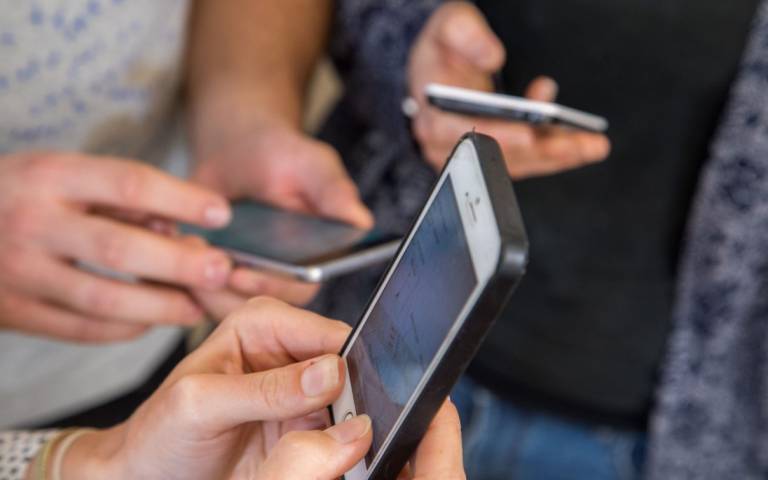Collaborating with tech companies is key for fighting COVID-19
31 March 2020
Scientists are calling on technology companies to work with researchers and governments to help curb the COVID-19 pandemic by sharing their data in a legal, proportionate, ethical and privacy-preserving manner.

Writing in Nature, the group from UCL, i-sense, Chatham House, Diagonal Works, Imperial College London and the London School for Hygiene & Tropical Medicine, led by Professor Rachel McKendry (UCL and Director of i-sense EPSRC IRC), says that with access to relevant and vital information, technology companies have an important role to play in ensuring patients and populations are protected.
Open data sharing among governments and researchers during the current COVID-19 pandemic has led to rapid online posting of clinical, epidemiological and virological data, which are shaping international public-health strategies. However, digital data from billions of mobile phones and footprints from web searches and social media remain largely inaccessible to researchers and governments.
Professor McKendry, said: “Sharing of data in these unprecedented circumstances will have a positive societal impact. Digital trails from web searches and social media could really help us better detect the spread of coronavirus in communities at an early stage, especially where there is no access to testing. It would allow us to evaluate the real impact of public health interventions, such as social distancing, which is essential for informing the fight against the COVID-19 pandemic.
“We ask governments and funders to create new centres of digital public health to deploy and evaluate proven innovations.”
By creating new centres in digital public health, governments could provide technology companies with a safe, protected way of sharing data for the purposes of deploying and evaluating digital public health interventions.
The team say the collaborative effort would support all key aspects of outbreak management including early disease detection, community surveillance, contact tracing, social mobilisation, health promotion, communication with the public, and evaluation of public-health interventions.
While it is clear there are many benefits to be gained from data sharing, it must happen in a carefully considered way to protect the individual as much as possible.
Co-author, Andrew Eland (Diagonal Works), added: "The utility of this data is well recognised, however the need to resolve the legal and ethical ambiguities is being forced at speed by the pandemic as the needs and benefits of accessing such data become more evident and acceptable to the public.
“If people gave consent to share data through apps they already use, that data can be protected with privacy preserving technologies. It's an important opportunity for people to share data for social good.”
Links
- Correspondence in Nature
- Professor Rachel McKendry's academic profile
- i-sense
- London Centre for Nanotechnology at UCL
- UCL Medical Sciences
Image
- Data sharing (Source: i-sense)
Media contact
Bex Caygill
Tel: +44 (0)20 3108 3846
Email: r.caygill [at] ucl.ac.uk
 Close
Close

